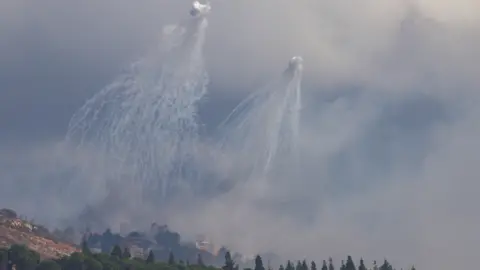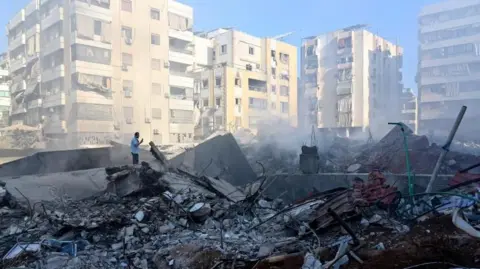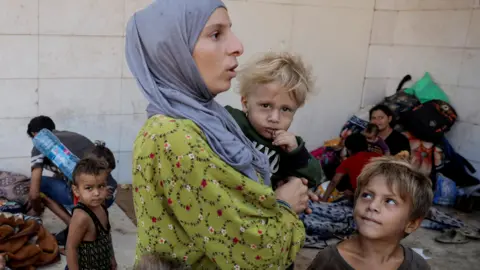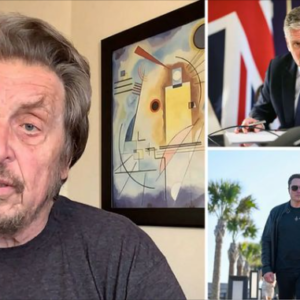
Israeli Ground Invasion in Southern Lebanon Escalates Conflict with Hezbollah
On Tuesday, Israel launched a ground invasion targeting Hezbollah in southern Lebanon, marking a significant escalation in their longstanding conflict and raising concerns about a potential regional war. The Israeli military announced that troops, supported by aircraft and artillery, began “limited” raids on border villages, stating that these areas posed an immediate threat to northern Israeli communities.
This ground operation follows a series of intense Israeli airstrikes against Hezbollah, including the recent assassination of its leader, Hassan Nasrallah. While Israel aims to ensure the safe return of displaced residents from border areas, Hezbollah remains defiant, continuing to launch rocket attacks into northern Israel and pledging to confront any Israeli ground forces.

Military Operations and Hezbollah’s Response
Reports indicate that Israel has conducted its first ground incursion into Lebanon in almost two decades, with local media describing the military presence along the border. Although the Israeli military did not disclose troop numbers or the extent of the invasion, officials characterized the actions as limited and localized.
Hezbollah’s spokesman denied any direct ground clashes but emphasized the group’s readiness to engage with Israeli forces if they entered Lebanese territory. In retaliation, Hezbollah fired additional rockets into Israel, declaring that these attacks were merely the beginning of its response.
Impact on Civilians and Regional Stability
The conflict has had severe consequences for civilians in Lebanon, with Prime Minister Najib Mikati warning that the country is facing one of its most perilous phases in history. The Lebanese health ministry reported over 1,200 deaths, including many women and children, while around a million people—approximately one-fifth of Lebanon’s population—have been displaced due to the violence.
Despite claims by Israel that it is targeting Hezbollah’s military infrastructure, residents in bombed areas have reported predominantly civilian casualties. This raises concerns about the humanitarian impact of the ongoing hostilities.

International Reactions and Future Implications
The U.S. government welcomed the assassination of Nasrallah, with Defense Secretary Lloyd Austin supporting Israel’s efforts to dismantle Hezbollah’s capabilities. However, he stressed the need for a diplomatic resolution to protect civilians on both sides.
The escalation of the conflict poses significant challenges to U.S. President Joe Biden’s diplomatic strategy in the region, which aimed to prevent the war in Gaza from spreading. Analysts suggest that Iran, which has close ties to Hezbollah, may respond by activating its network of allied militias to carry out attacks against Israel and U.S. interests.
As tensions continue to rise, both Hezbollah and Iran are expected to consider their next moves carefully, weighing the risks of further escalation against the potential for retaliation.





